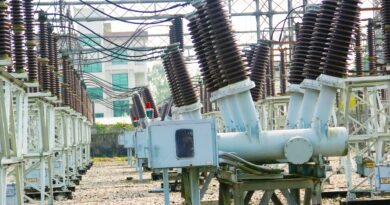Uncovering Hidden Hazards: Insights from Electrical Safety Audits in Delhi
Introduction
Electrical safety is a crucial aspect of maintaining a secure and hazard-free environment in any residential, commercial, or industrial setting. In cities like Delhi, where the population is dense and infrastructure is rapidly developing, electrical safety audits play a pivotal role in uncovering hidden hazards and mitigating potential risks. This article aims to provide insights into electrical safety audits in Delhi, highlighting common hazards, benefits, key findings, and measures to ensure electrical safety.
Understanding Electrical Safety Audits
Importance of Electrical Safety Audits
Electrical safety audits are proactive measures conducted to assess the safety of electrical systems and identify potential hazards. These audits are essential to prevent electrical accidents, injuries, and fires, which can result in loss of life, property damage, and business disruptions. By uncovering hidden hazards, electrical safety audits enable individuals and organizations to take corrective actions and ensure compliance with safety regulations.
The Purpose of Electrical Safety Audits
The primary purpose of electrical safety audits is to evaluate the overall electrical safety of a premises. These audits assess various aspects such as wiring, circuits, grounding, electrical equipment, safety measures, and emergency preparedness. The findings and recommendations from audits help stakeholders understand the existing risks, implement necessary improvements, and establish a culture of safety.
Common Electrical Hazards
During electrical safety audits in Delhi, several common hazards are frequently identified. It is crucial to address these hazards to prevent accidents and create safer environments.
Faulty Wiring and Electrical Connections
Faulty wiring and improper electrical connections pose significant risks. These hazards can lead to short circuits, electrical shocks, and fires. Aging infrastructure, poor installation practices, and inadequate maintenance contribute to these hazards.
Overloading of Circuits
Overloading circuits by plugging in too many devices or drawing excessive power from a single outlet is a prevalent hazard. It can cause overheating, electrical failures, and fire outbreaks. Overloading often occurs due to inadequate electrical planning and lack of awareness.
Inadequate Grounding
Improper grounding of electrical systems can result in electrocution and equipment damage. Grounding provides a safe path for excess electrical current to dissipate, reducing the risk of electrical shocks. Lack of proper grounding is commonly found during electrical safety audits.
Poor Maintenance of Electrical Equipment
Neglected maintenance of electrical equipment increases the likelihood of hazards. Aging components, loose connections, and deteriorated insulation can lead to electrical failures, arc flashes, and electrical fires. Regular maintenance is vital to address these issues.
Lack of Proper Safety Measures
Insufficient safety measures, such as absence or improper placement of safety devices like circuit breakers, can expose individuals to electrical hazards. Inadequate signage, lack of personal protective equipment (PPE), and inadequate training further contribute to safety risks.
Benefits of Electrical Safety Audits
Electrical safety audits offer numerous benefits for both individuals and organizations. By conducting regular audits, potential hazards can be identified and addressed in a timely manner, resulting in improved safety and compliance.
Early Identification of Potential Hazards
Electrical safety audits help in early detection and identification of potential hazards. By addressing these hazards proactively, the risk of accidents and disruptions can be significantly reduced.
Compliance with Safety Standards and Regulations
Regular audits ensure compliance with safety standards and regulations set by authorities. This helps organizations avoid legal penalties, maintain credibility, and demonstrate a commitment to safety.
Preventing Electrical Accidents and Fires
Through comprehensive inspections, audits play a crucial role in preventing electrical accidents and fires. By identifying and rectifying hazards, the probability of electrical failures and resulting incidents can be minimized.
Minimizing Downtime and Business Disruptions
Electrical failures can lead to significant downtime and disruptions in business operations. By conducting safety audits and implementing necessary improvements, businesses can reduce the risk of such incidents, ensuring smooth and uninterrupted operations.
The Process of Electrical Safety Audits
Electrical safety audits involve a systematic process to assess the safety of electrical systems and facilities. This process typically consists of the following steps:
Preparing for the Audit
Before conducting an electrical safety audit, it is essential to gather relevant information about the premises, including electrical diagrams, maintenance records, and safety policies. This information helps auditors understand the context and plan the audit effectively.
Conducting the Audit
During the audit, auditors inspect the electrical infrastructure, equipment, and safety measures. They assess compliance with safety standards, identify hazards, and evaluate the overall safety practices in place.
Evaluating Findings and Recommendations
After completing the audit, the findings and recommendations are compiled into a comprehensive report. This report highlights the identified hazards, their severity, and suggestions for corrective actions.
Implementing Corrective Actions
Based on the audit report, stakeholders can implement the recommended corrective actions. This may involve repairs, upgrades, training programs, and policy changes to enhance electrical safety.
Key Findings from Electrical Safety Audits in Delhi
Electrical safety audits conducted in Delhi have revealed several key findings that highlight the need for improved safety measures and awareness.
Non-compliance with Safety Standards
Many premises audited in Delhi have been found to be non-compliant with safety standards and regulations. This includes inadequate installation practices, absence of safety devices, and poor maintenance of electrical systems.
Overloaded Electrical Systems
A significant number of electrical systems in Delhi have been found to be overloaded during safety audits. Overloading occurs when the electrical demand exceeds the capacity of the system, leading to overheating, equipment failures, and potential fire hazards. This finding emphasizes the importance of proper electrical planning and load management.
Inadequate Training and Awareness
One common observation from safety audits is the lack of sufficient training and awareness among individuals regarding electrical safety. Many occupants of residential and commercial buildings in Delhi are unaware of basic safety practices, such as avoiding contact with live wires, understanding the importance of grounding, and recognizing potential electrical hazards. This knowledge gap increases the risk of accidents and injuries.
Lack of Maintenance Procedures
Maintenance plays a critical role in ensuring the safety and functionality of electrical systems. However, safety audits have revealed a lack of proper maintenance procedures in many premises in Delhi. Neglected maintenance leads to deteriorated equipment, loose connections, and increased chances of electrical failures.
Insufficient Emergency Preparedness
In the event of an electrical emergency, having proper emergency preparedness measures in place is crucial for minimizing damage and ensuring the safety of individuals. However, safety audits have highlighted the lack of adequate emergency plans, including procedures for handling electrical incidents, evacuation protocols, and access to emergency shutdown mechanisms.
Outdated Electrical Infrastructure
Delhi, like many other cities, faces the challenge of outdated electrical infrastructure. Aging wiring, obsolete equipment, and inadequate electrical distribution systems pose significant risks. Safety audits often reveal the need for upgrading infrastructure to meet modern safety standards and accommodate the increasing electrical demand of the city.
Ensuring Electrical Safety in Delhi
To address the hazards identified through safety audits and promote electrical safety in Delhi, several measures can be taken by individuals, organizations, and regulatory bodies.
Enhancing Safety Regulations and Enforcement
It is crucial to have robust safety regulations and strict enforcement mechanisms in place. Authorities should regularly review and update safety standards to keep pace with technological advancements. Furthermore, conducting regular inspections and taking strict actions against non-compliance will create a culture of safety.
Promoting Education and Awareness
Educating the public about electrical safety is paramount. Awareness campaigns, workshops, and training programs should be organized to disseminate information about safe electrical practices. Schools, workplaces, and community centers can play an essential role in educating individuals about electrical hazards, emergency procedures, and the importance of electrical safety.
Encouraging Regular Maintenance and Inspections
Establishing a culture of regular maintenance and inspections is crucial for ensuring electrical safety. Building owners, facility managers, and homeowners should prioritize scheduled maintenance activities, including equipment checks, wiring inspections, and electrical system testing. Regular audits and inspections help identify potential hazards early on and facilitate timely corrective actions.
Investing in Upgrading Electrical Infrastructure
To address the issue of outdated electrical infrastructure, investment in upgrading and modernizing the electrical systems in Delhi is vital. This includes replacing aging wiring, upgrading distribution panels, and adopting energy-efficient technologies. Upgrading infrastructure not only enhances safety but also improves the reliability and efficiency of electrical systems.
Conclusion
Electrical safety audits provide invaluable insights into the hidden hazards present in electrical systems. In Delhi, these audits have highlighted the need for improved compliance, enhanced awareness, regular maintenance, and infrastructure upgrades. By addressing the findings from safety audits and implementing the recommended measures, Delhi can create a safer environment, reducing the risks associated with electrical accidents, injuries, and fires.




